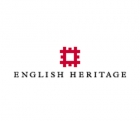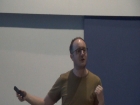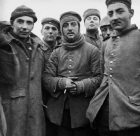General
When considering planning for any topic perhaps the first question should be to question your rationale for teaching this topic and how it relates to wider issues such as diversity, learning outside the classrooms, and whether to teach history discreetly or as a part of meaningfully linked cross curricular approach. In this section, you will find articles, guides, resources that will support you to develop your planning and helping children to make progress.
Sort by:
Date (Newest first) | Title A-Z
Show:
All |
Articles |
Podcasts |
Multipage Articles
-

A History of the World: 100 objects that tell a story
ArticleClick to view -

A view from the classroom
ArticleClick to view -

Archaeology: A view from the classroom
ArticleClick to view -

Archives in Primary History
ArticleClick to view -

Artefacts and art facts: images of Sir Francis Drake
ArticleClick to view -

Asking the right questions. A study of the ability of KS2 children to devise and use questions as part of their own research
ArticleClick to view -

Bring on the iPad revolution
ArticleClick to view -

Britain from the Iron Age to Robin Hood
ArticleClick to view -

Britain, Europe and the World?
ArticleClick to view -

Case Study: Historical information and the local community
ArticleClick to view -

Curriculum Planning: which non-European society might we offer at school?
ArticleClick to view -

Doing History with Objects
ArticleClick to view -

English Heritage's Heritage Explorer
ArticleClick to view -

Extending Primary Children's thinking through artefacts
ArticleClick to view -

Film: Making an effective History curriculum
ArticleClick to view -

Helping pupils to view historical film critically
ArticleClick to view -

History, artefacts and storytelling in the 2011 primary curriculum
ArticleClick to view -

How diverse is your history curriculum?
ArticleClick to view -

Ideas for Assemblies: Lest we forget
ArticleClick to view -

In my view: We must support gifted historians from an early age
ArticleClick to view

